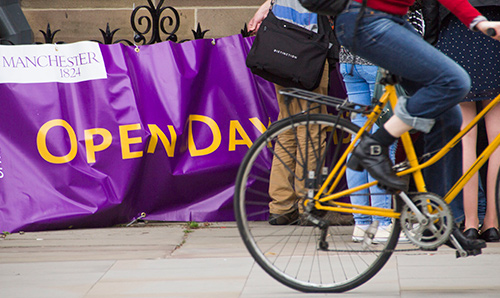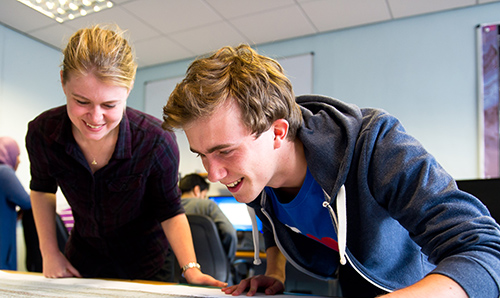Undergraduate
Begin your adventure into the world of electrical, electronic and mechatronic engineering at Manchester, the home of the first stored-program computer, which continues to offer exciting, practical degrees.
We've been educating electrical, electronic and mechatronic engineers for more than a century and, with strong industry links to global companies, our hands-on courses come with excellent employability prospects.
Explore your course options, industrial experience choices, ways to apply and more below.
Learning at Manchester
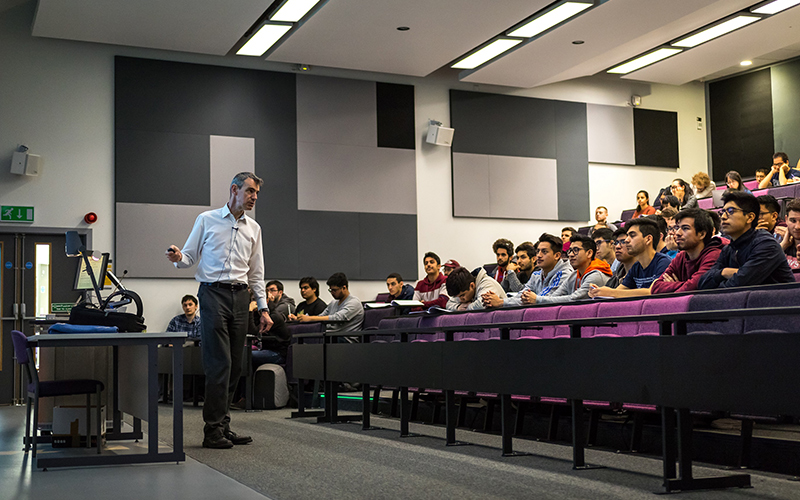
Lectures: Individual lectures are an hour long, with lecturers speaking for around 50 minutes, allowing ten minutes for room changes. A set of lectures in a subject, along with the laboratories, coursework and examination, are collectively known as a course unit.
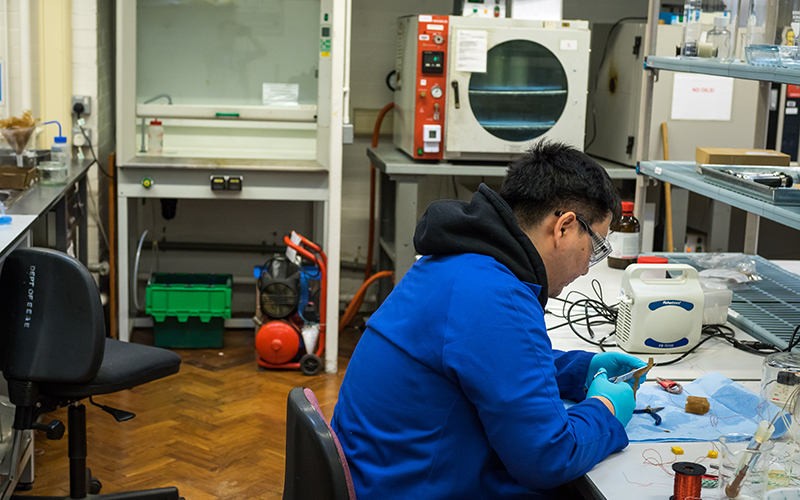
Laboratories: Our Department has extensive facilities, including a National Instruments-sponsored laboratory, a dedicated power conversion laboratory, a microcontroller laboratory and specialist PC clusters for computer aided design (CAD) and programme development.
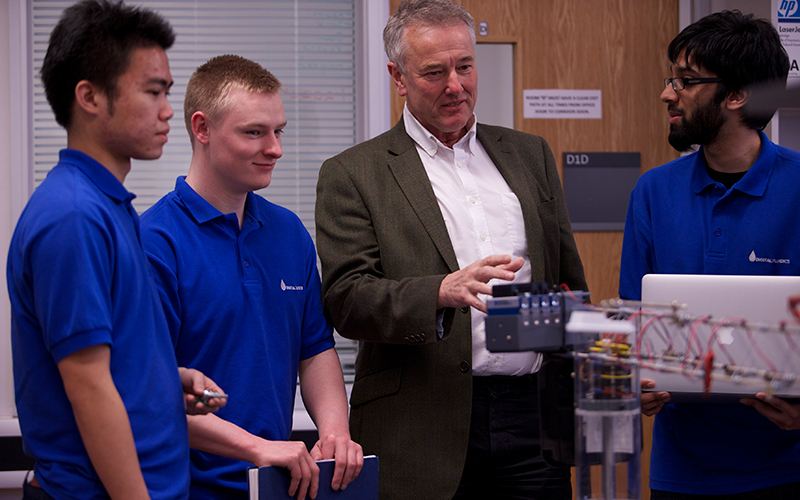
Personal tutors: Most academic staff members act as personal tutors to a small group of students. Groups meet with their personal tutors weekly. The tutors help with academic problems and act as advisors on more general matters concerning life in a busy university.
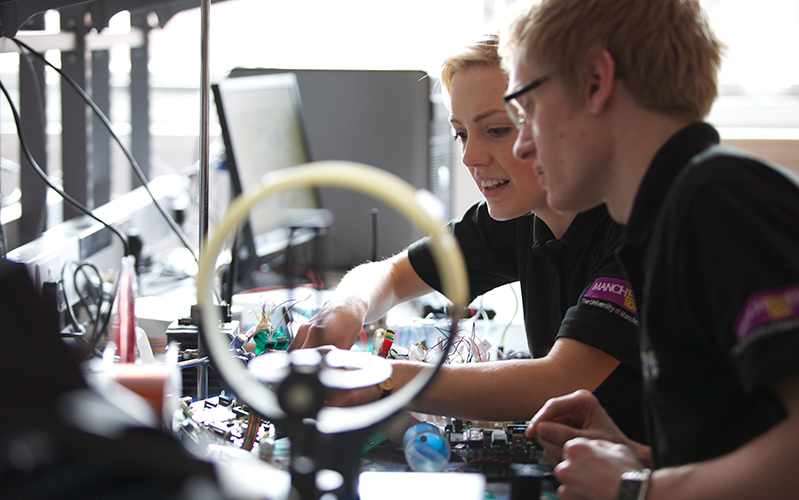
Project work: This is essential to our courses. You will build a microcontroller system as a project in the first year and then use it in the group project in the second year. A substantial feature of the third year is the individual project, which allows you to show the knowledge and techniques you have learned.
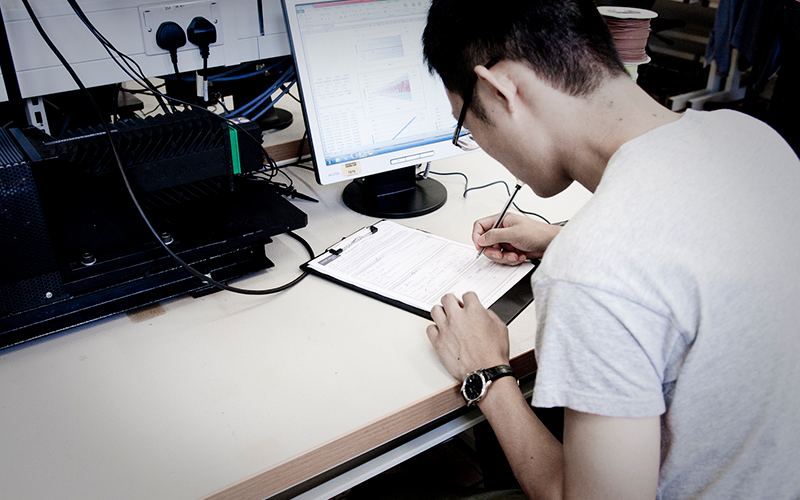
Assessment: In all years course units are assessed by coursework, project work and examinations. There are two examination periods, one after the Christmas vacation and the other in May or June. The type of assessment depends on the content of the course unit.
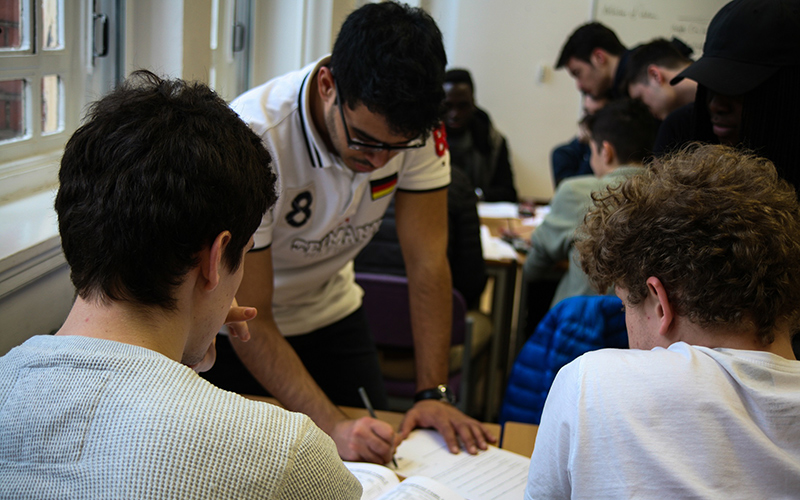
Peer-Assisted Study Scheme (PASS): PASS is a student mentoring scheme in which undergraduate students in Years 1 and 2 gain help and advice from more experienced second and third-year students.
What you need to know
Find out more about key parts of the undergraduate experience at The University of Manchester:

